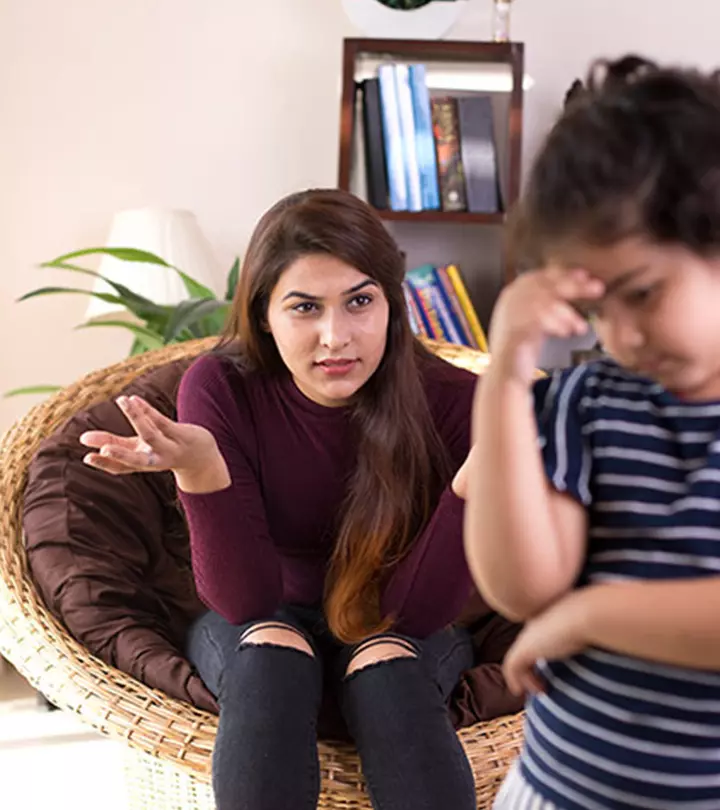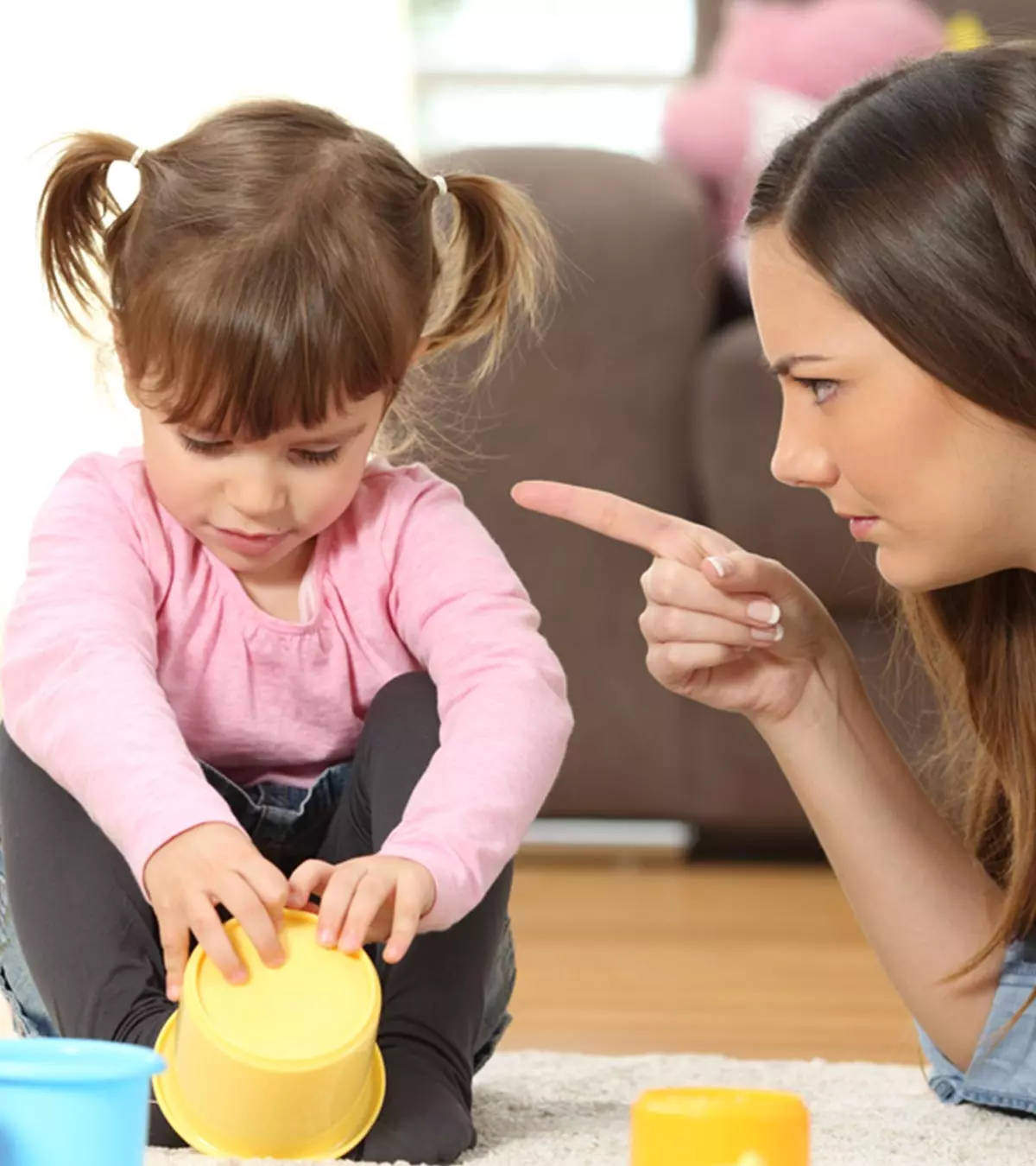

Image: iStock
Parents are the first teachers of their children. Be it learning to utter the first words or taking the first steps, parents guide their children from the earliest of our days. What parents teach their children, stay with them forever. In fact, research across the world has shown that children whose parents take active involvement in their education, on average, do better academically (1).

Children look up to their parents and tend to emulate pretty much all that they do. So, it is crucial that you practice what you preach. While you educate them, make sure that you lead by example. Instead of only telling them what to do, get them involved in the process. However, don’t bog them down with too many responsibilities too soon. Teach them at a slow and gradual pace so that they also enjoy the process. And yeah! start early! Good habits like all habits take time to set in.
So, without further ado, let’s get started on a few essential things that you can teach your child before they are ten!
It’s Okay To Make Mistakes
Image: IStock
For the longest time, particularly in the first few years of their lives, your child will look up to you for validation and approval. When they do wrong, correct them, but don’t instill a sense of fear and anguish when they make mistakes. Sometimes, the best way to learn something is by goofing things up the first time. Make “failure is the pillar of success” your mantra. Let your child make mistakes, and then learn from the mistakes.
Girls And Boys Are Equal
Image: IStock
Unfortunately, society has set certain unreasonable norms and expectations of what it means to be a girl and what it means to be a boy. Girls are expected to be meek and submissive, while boys are expected to be fearless and strong. Because of this, women are shunned when they have strong opinions, and men are branded as cowards when they have an emotional outburst. Teach your child at an early age that both boys and girls are equal — that we are all humans and entitled to equal respect. Also, teach your child that it’s okay to go against biased gender roles that society has so unfairly imposed on most of us.
Don’t Be Afraid Of Your Parents
Image: IStock
Parents often expect respect as an entitlement rather than something that is earned. It is true that children need a guiding figure, and parents are often the ones, but when you force your authority upon them they become scared of you. It can ruin your bond and cause them to become closed-off.
As a parent, your child should be able to confide in you. For this to happen, you need to be their friend. Be there for your child when they are in trouble, and remind them that you are there for them to lean on. Also, it’s essential to act like someone they can confide in, rather than be scared of.
Grades Are Good, But Knowledge Is Far More Superior
Image: IStock
School can be challenging, especially when the mark of success is the grades on the report card. We often forget that the whole point of sending our children to school is to help them acquire knowledge. This shapes them to be the best version of themselves. And sometimes, grades can do little to help with that. This isn’t to say that you encourage your child to discount their studies and pursuit to do well in their exams. But, you should make it a point to tell your child that learning and understanding the subject matter are of utmost importance, more so than just mugging up what’s in the textbook so they can score good grades.
Stand Up For Yourself
Image: Shutterstock
It’s important that you teach your child to stand up for themselves. In many situations, there will be instances where your child might feel shy or threatened to speak out their mind or what they deem right. It could be a discussion in the classroom or just a conversation with friends. In worse cases, your child might also have to face bullying. You should encourage your child not to be silent sufferers and express their views and resist bullying at all costs. But also teach them not to impose their views on others. Kids too need to know the difference between expressing their views and forcing their views on someone.
Don’t Be Afraid To Ask Questions
Image: Shutterstock
Children are a curious bunch. They have questions all the time, and at times this may wear you down and you may be tempted to rebuke them. But asking questions has great value in children’s learning process. So, be patient and don’t stop their habit of questioning. Instead, encourage them to ask questions. It paves the way to learn new things.
When you stop them from asking questions, they tend to refrain from doing so even when they should. The habit of not asking questions will hamper your child’s learning process in the long term. They might grow up to be meek individuals who lack confidence in interactions.
Take Care Of This Earth
Image: Shutterstock
Today, every person should care about our planet Earth. As pollution and global warming impact our lives on a daily basis, it calls for proper awareness among all. So, sensitizing children from a young age about environmental issues is something every parent should do in today’s day and age. You can start involving your child in simple activities like planting a sapling or watering the plants in your households. Waste disposal and cleanliness are also things that children need to be aware of and be practicing themselves too. Also, if possible take them out on trips where you can spend time in or near forest areas. This will expose them to nature and instill care and affection for mother nature. You will be glad in the future when your children grow up to be individuals who deeply care about the environment and contribute towards its betterment.
As parents and caregivers, we have a duty towards our children. We play a significant role in making them unique, responsible, competent, and compassionate adults. The best way to do this is by starting early. Do you have more to add to the list? Let us know in the comments below!
References
- Effect of Parental Involvement on Children’s Academic Achievement in Chile
https://www.ncbi.nlm.nih.gov/pmc/articles/PMC6610476/
Community Experiences
Join the conversation and become a part of our nurturing community! Share your stories, experiences, and insights to connect with fellow parents.



















